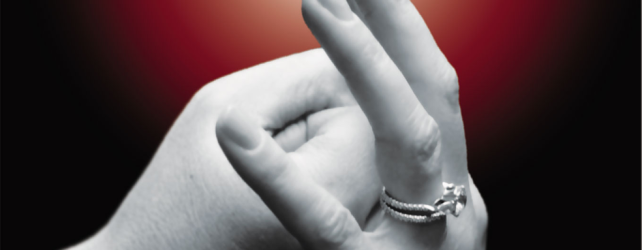It’s almost here.
The Hardness of the Heart, my sequel to The People of the Sign, will be released this Friday — on Valentine’s Day. (It’s already available for pre-order here.) I couldn’t be more excited.
With the release just around the corner, my publisher reached out to interview me about the book. Below I’ve re-printed the question and answer portion of that blog post…
—
Q: What conflicts lie at the heart of the HoH narrative?
A: The trilogy that began with The People of the Sign is ultimately about reconciliation — in broad, general terms. Reconciliation between man and God, between man and his fellow man, and also reconciliation within ourselves, of inner conflicts and turmoil. Divorce is a broad metaphor underlying the first two volumes as my inner conflict and turmoil was kindled by the divorce of my parents and my subsequent kidnapping and dislocation, followed by the “divorce” that split the Worldwide Church of God in two. The title The Hardness of the Heart is drawn from Jesus’ response to the Pharisees’ question on divorce. That is the long answer. The short answer is, the major conflict at the heart of HOH is the collapse of my marriage, after having dedicated a major part of my life and identity to achieving a happy marriage, and avoiding divorce at all costs.
Q: HoH deals, in large part, with the trappings of trying to climb the corporate ladder. How have you reconciled those challenges with your own continued success in that world?
A: Yes, this is a major source of conflict in the book, both external and internal. I use my own experience in an attempt to outline, in narrative form, the underlying causes and symptoms of economic inequality, and the difficulty of finding equilibrium within existing frameworks. This is an important topic as this country, and by extension the world, is suffering systemic disruption resulting from the red/blue state divide. I attempt to reveal the elements of socialist vs. capitalist ideology within its foundation. I don’t feel I’ve yet achieved equilibrium on this, but perhaps by the time I finish the third and final volume I’ll be closer.
Q: How emotional was the process of re-examining such tumultuous times from your past?
A: I’m often asked about catharsis. This did not occur in writing the first volume, as its dramatic concluding events were already 14 years in the past when I began writing them. I did gain some additional insight in key areas, which then informed the writing of the second volume. The level of insight gained in writing the second book was substantially higher, as the concluding events of that volume were but 5 years in the past when I began writing them down. Emotions related to that experience were mostly positive, as the reflection required furthered the process of internal reconciliation. But the initial public response to HoH indicates to me that it’s going to be much more difficult to be detached this time around. Particularly as readers respond to my over-sharing approach to where I’m at today, vs. where I was in the past.
Q: Were you surprised at the positive reaction of Laura Urista (managing editor of The Plain Truth magazine and fellow ex-WCG member) to your book?
A: Not completely, as I was hopeful that she would relate to the direction of my journey during that time. Still, I was pleasantly surprised at how open and supportive she was, given the tendency of those with a WCG background, myself included, to be convinced of our rightness and the wrongness of others.
Q: What do you hope readers will ultimately get out of HoH?
A: One early reviewer stated that for the first time in her life, she felt loved by God. That was an unexpected comment that brought tears to my eyes. Others have shared that they felt understood or less alone. If my readers are inspired or enabled to reflect on their own experiences, and draw positive life lessons, or just feel better about themselves, I’m grateful for having helped them out.
Q: You’ve recently stated that receiving the ASTRA Lifetime Achievement Award in India represented the completion of a “full circle” for you. Can you elaborate?
A: To me it is a sign of having achieved a degree of integration, of having made progress at reconciling these conflicting impulses — the desire for spiritual enlightenment and also physical success. The attraction of altruism contrasted with the innate need to survive and thrive in a material world. To obtain for myself and my children the access to benefits, opportunities, and experiences — such as a healthy environment, education and healthcare — that we, in our flawed attempts at civilization, are still struggling to secure for all members of our species.
—
If you have your own questions about the book, or if you’d like to share your impressions of it, please feel free to reach out in the comments below!





